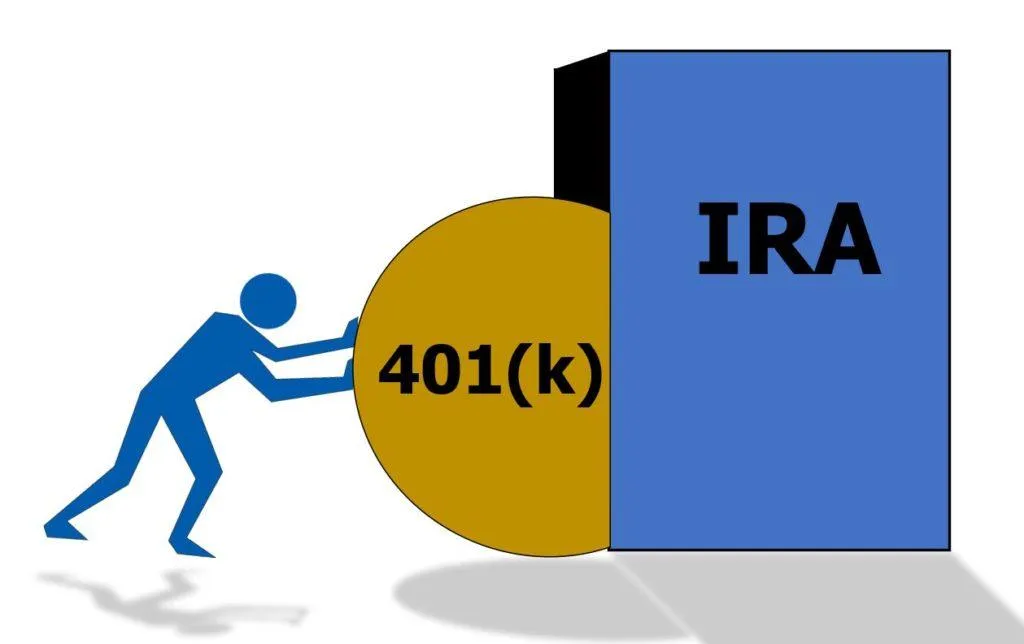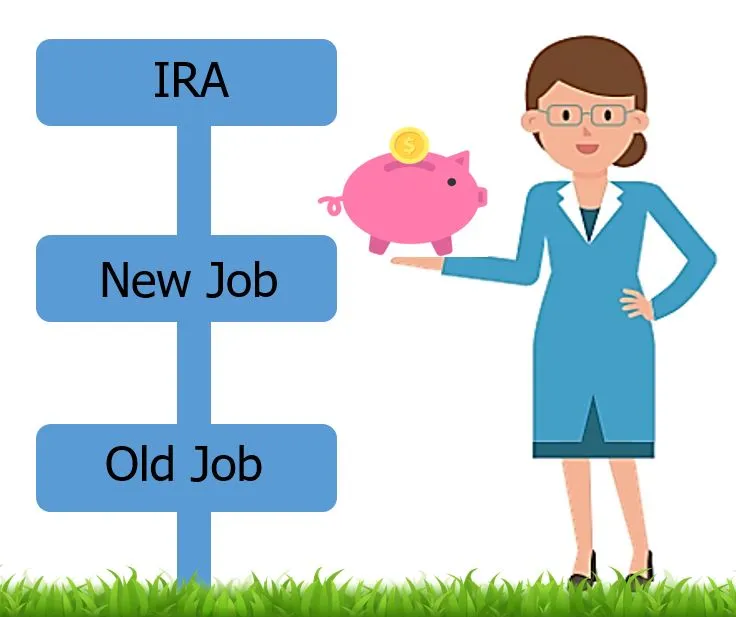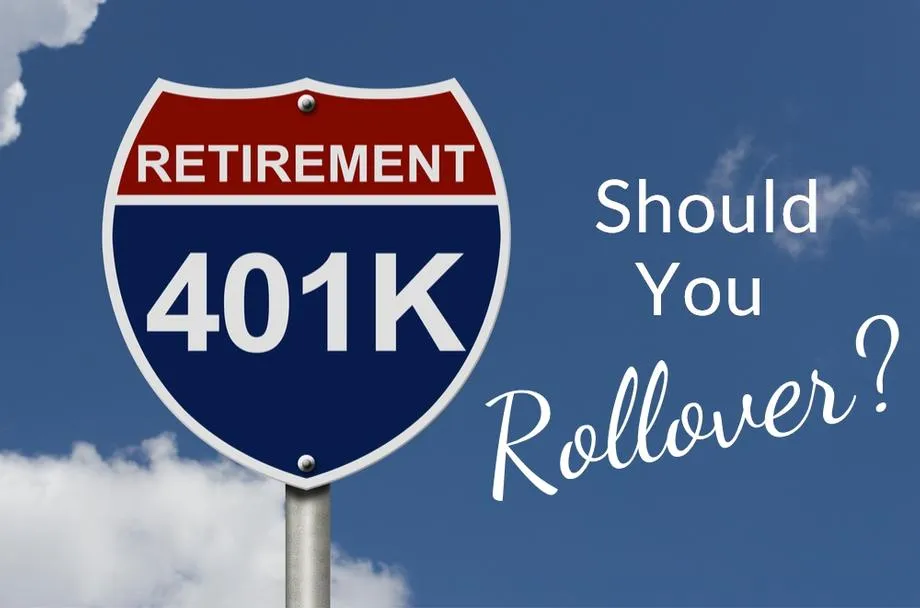
401(k) Rollovers – What You Need To Know
The 401(k) plan has grown to become the most popular type of employer-sponsored retirement plan in America. Millions of workers depend on the money they have invested in these plans to provide for their retirement years.
An important consideration when you are starting your career, or looking to change employers/careers, are the benefits that an employer provides. A key benefit to consider is whether the employer sponsors a 401(k) or other similar retirement plans.
A 401(k) is a qualified retirement plan, which means it is eligible for special tax benefits. You can invest a portion of your salary up to the annual limit. Currently its $19,500 if you are below age 50 or $26,000 if you are age 50 or above in 2021. A 401(k) can also help with your long-term investment strategy.
Your employer might match a portion of your contribution. We always encourage you to contribute enough to at least get the match. This is free money from your employer, take advantage!
Accessing your money
How do you access these funds? Generally, you can’t withdraw any of this money without incurring a penalty prior to age 59 and a half. Below I will discuss the options you have in order to avoid this penalty along with unnecessary taxes. The average person changes jobs twelve times in their lifetime according to the latest public survey conducted by ZIPPIA, the career expert. For more interesting statistics, click here.
That said, it is very possible that you will have multiple 401(k)s throughout your career journey. The question to ask yourself is, what are my options with my old 401(k), and which option is best for me? The answer is that this will depend on your unique situation. It’s best to work with your financial advisor to make this determination.
Let’s take a look at what your options are, and then let’s take a look at the pros and cons of rolling over your 401(k) into an individual retirement account (IRA).

Options for your old 401(k)
You have three options when it comes to your old 401(k).
The first is that you might be able to keep the 401(k) within your previous employer’s plan. If they do allow you to maintain your account, you’re happy managing it, and you’re satisfied with the investment choices, then this can be a convenient option. You will want to consider the fees associated with this choice. Many large 401(k) plans offer low-cost options that have been carefully vetted by the plan’s administrators. But other 401(k)s are loaded up by underperforming funds and high costs. Even low-cost plans may charge former employees higher administrative fees if they choose to keep their 401(k) there after leaving the company.
Your second option is to transfer the money from your old 401(k) plan into your new employer’s plan if their plan accepts rollovers. The new plan may have lower fees or better investment options. An advantage to rolling over your old 401(k) to the new one is keeping your assets all in one place. This makes it is easier to track your total retirement savings.
You will want to be aware of the 401(k) transfer rules and make sure you follow them correctly. Keep in mind if you don’t do a direct rollover, a mandatory 20% withholding will apply. This gives you 60 days to get the new plan fully funded including the 20% so that you are not exposed to taxes or possibly a 10% penalty. Best practice would be to work with a financial advisor to help get this taken care of and make sure this is the best choice for you.
The third option would be to rollover your old 401(k) into an IRA. An advantage to this option is that you will have a wider choice of investment options and will not be limited to what your old plan offers. This gives you more control and allows you to build a more robust portfolio that can align better with your overall financial plan. This option can also help lower the management and administrative fees, which can eat into your investment returns over time.
We have thrown a lot of information at you. When does it make sense to take advantage of leaving your assets within a qualified plan such as your 401(k)? Here are a few reasons you would consider leaving your assets within a 401(k):
- If you might need to be able to take a loan from your 401(k) plan
- Some plans allow you to take a loan out of the plan while IRAs do not
- If you retire, get laid off, or quit a job between the ages of 55 and 59.5
- 401(k) plans allow you to take distributions prior to age 59.5 if you meet certain criteria, without the 10% penalty. For more information about retiring early, check out last month’s blog post
- Extra protection from litigation or creditors
- In a 401(k) plan your assets are generally protected from creditor claims
- IRAs are still protected, but the rules vary between states
- If you are going through a divorce
- While both IRAs and 401(k)s can be divided the 401(k) allows the receiving spouse to liquidate the account if needed without the 10% penalty
Here are a few considerations that might favor rolling your 401(k) over to an IRA account:
- Upcoming educational expenses
- You are able to take qualified IRA distributions for college expenses with no early distribution penalty
- Additional down payment on a home
- An IRA allows you to withdrawal up to $10,000 for a first-time home purchase. This can be for yourself, spouse, child, or grandchild
- Help pay for health insurance costs while unemployed
- If you have been unemployed for 12 weeks you are able to use IRA funds to help pay for medical insurance
- Consolidation of fees and accounts

You are able to consolidate all of your 401(k)s and IRAs into one account which can help lower your overall fee and make sure that your portfolio is designed for your specific needs. For more information about direct vs. indirect rollovers, click here.
As you can see there is a lot to consider when you are transitioning to new stages of life in the financial planning process. Your financial advisor can discuss the pros and cons of a 401(k) rollover further with you to help pinpoint your specific situation and help determine the best option for you to take advantage of the best strategy for your financial plan.
If you have any questions, feel free to give our office a call as we are more than happy to dive deeper into this conversation.
Read More

How to Structure Retirement Income Planning for Modern Life Expectancy

Why Your CPA and Financial Advisor Should Be Best Friends

How Often Should I Meet With My Financial Advisor?

Smart Money Moves to Make for 2026

26 Things To Consider In 2026






